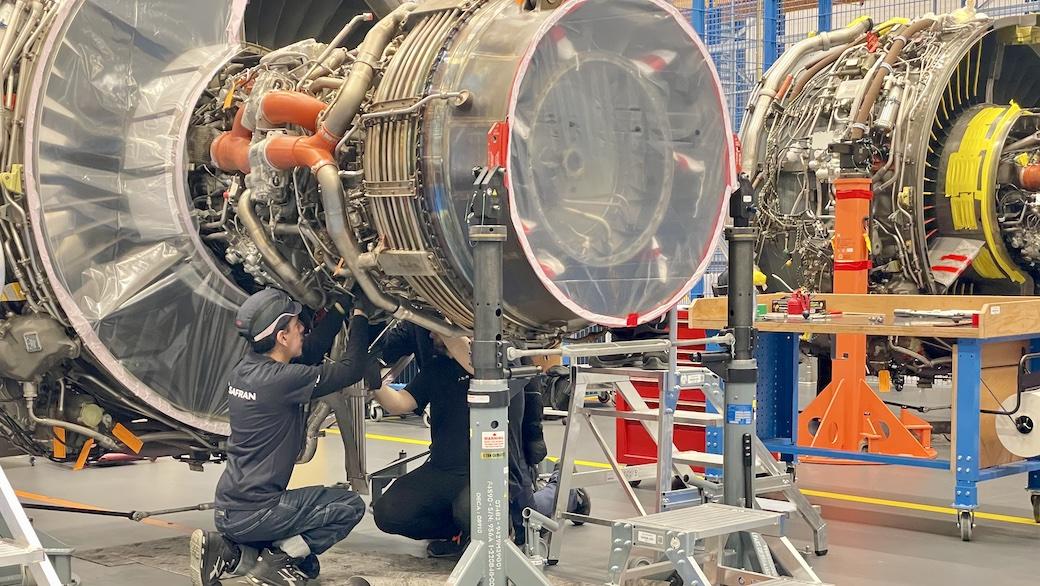This article is published in Aviation Week MRO part of Aviation Week Intelligence Network (AWIN), and is complimentary through Nov 06, 2024. For information on becoming an AWIN Member to access more content like this, click here.

BRUSSELS—To be ready for an anticipated surge in Leap engine shop visit demand, Safran Aircraft Engines is adding capacity to its global maintenance, repair and overhaul (MRO) network.
For Safran, the plan for Leap MRO services is calling for much more revenue than from the Leap predecessor CFM56. With the CFM56, Safran has met some 10% of the global demand for services.
The expansion effort is taking place along the lines of the GE Aerospace-Safran Aircraft Engines agreement for MRO services on the Leap engine, which the two companies manufacture under their CFM International joint venture. Together, GE and Safran are targeting a 50% share of the global market for Leap services. They are aiming to split that share evenly—25% each—by 2040.
Their forecast is designed to support Safran’s intention to grow its MRO network fast. The Leap powers the Airbus A320neo family, Boeing 737 MAX and Comac C919. It entered service on the A320neo in 2016.
Safran expects a Leap engine to undergo three or four shop visits over a 22-25-year lifetime. The first such event may take place after 8-10 years, Jean-Paul Alary, Safran Aircraft Engines CEO, said during at the facility in Brussels on Oct. 29.
Close to 4,000 Leap-equipped aircraft are in service and the fleet will double by 2030, according to Safran. The company predicts the global demand for Leap shop visits will reach 5,000 per year by 2040.
As opposed to allocating regions to one company, GE and Safran are creating a network of MRO facilities where they both provide services in each of three large regions: Asia-Pacific, the Americas, and Europe, Africa and the Middle East. The latest addition to Safran’s network, a Leap maintenance workshop near Mohammed V International Airport in Casablanca, Morocco, was announced Oct. 29. The facility will offer capacity for 150 engine shop visits per year, Safran said. It is planned to be ready in 2026 and to create 600 direct jobs by 2030.
Safran is counting on such investments to offer an annual capacity of 1,200 shop visits by 2028. The company is preparing a new MRO site in Hyderabad, India, for a start of operations in 2025. Other additions or extensions in the next two years will include Queretaro, Mexico, as well as Villaroche and Saint-Quentin-en-Yvelines in France. Combined, Safran’s projects for Leap MRO amount to more than €1 billion ($1.1 billion), Alary said.
Safran expects to see licensed third-party MRO service providers complementing capacity after 2028. GE and Safran also are counting on open bidding to spur competitiveness. The two partners also are betting on this approach to make the Leap attractive, as opposed to one where the manufacturer is the only MRO service provider.
So far, 14 such workshops provide licensed services. Five are “Leap Premier MROs” (the former “CFM service-branded agreements”): Air France Industries-KLM Engineering and Maintenance, Delta Tech Ops, Lufthansa Technik, ST Engineering and StandardAero.





